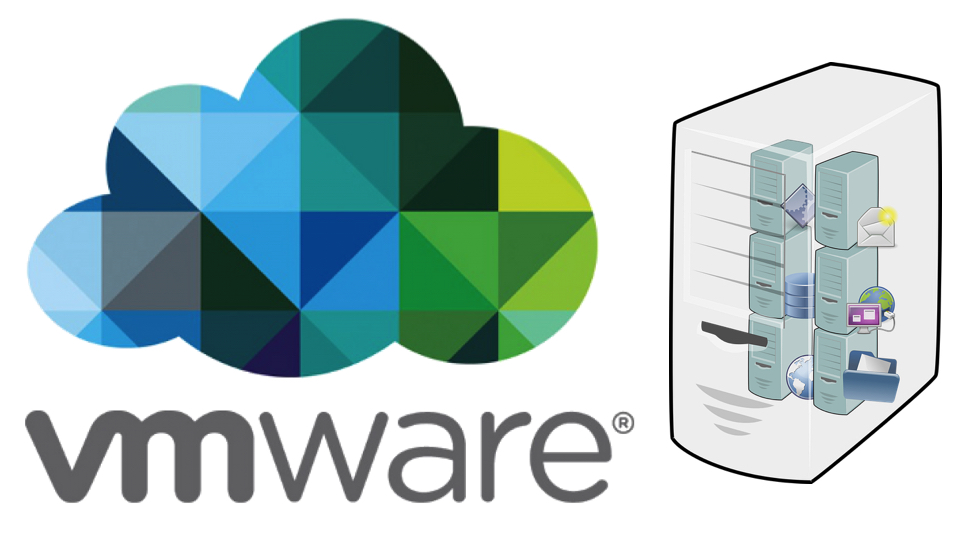Founded in 1998, VMware is a cloud computing and virtualization company that has helped change how hardware setups power workloads and support architectures.
As enterprise IT has evolved over the last few decades, virtualization has become a innovative new elements of how software and hardware resources are methodical to create agile systems. Basically, virtualization replaces exact hardware with virtual nodes or workstations, enabling much of what traditional physical servers and computers did before the era of virtualization.
They introduced VMware GSX Server and VMware ESX Server to the market in 2001. The majority of VMware virtualization software programs are business oriented.
3 Main types of virtualization software:
- Desktop virtualization software
- Server virtualization software
- Cloud management software
The most important server virtualization software in the product line is VMware vSphere and VMware Server.
VMware vCloud
VMware vCloud Suite is a software-defined data center solution based on the vSphere Private Cloud implementation. Evolving from vSphere due to changing demands of cloud/IT managed service providers. It offers a complete cloud solution with data center virtualization, automated operations, resilient infrastructure high availability, and more recently substructure delivery automation (vSAN / NSX).
vCloud includes some key features. Use vSphere for compute and vRealize Automation for policy-defined compute automation, such as creating automated host deployments of policy definitions. It also includes vRealize Operations Manager. It is a capacity management suite and license manager used to monitor your entire virtual infrastructure and forecast future capacity requirements.
An archetypal vCloud Cloud Management setup contains at least two websites. Each site is connected by dark fiber, and each site has multiple hosts and replicated storage. vCloud includes VMware vCenter Site Recovery Manager (SRM), a highly available disaster recovery solution that replicates data between sites. In the event of a disaster, SRM uses a predefined policy to failover servers and services from Site A to Site B. This is an automated process and managed service providers can offer up to 99.99% (always online) uptime capabilities.
vSAN is a software-defined enterprise-class storage solution. vSAN can use communal server storage as part of a greater virtual storage device. VSAN then applies compression and deduplication to the data to diminish the VM footprint. This provides better performance than traditional storage infrastructures. There is no need for a dedicated storage SME as the policy creation and storage management are all done in vCenter. vSAN can be scaled up by simply adding storage to the provisioned vSAN host.
VMware also recently introduced NSX, which provides virtualization across the network fabric. It provides a secure and agile virtual network managed by vCenter. NSX can virtualize the roles of firewalls, switches, routers and load balancers. Network policies can be applied on a server-by-server basis, which allows the infrastructure to be segregated into different parts of the network, improving the overall security of the network. NSX Network Templates can be deployed instantly, so professionals can build a network infrastructure from their workspace with just a few clicks.
Working of Virtual Machines
VMware is the important virtualization software in the web hosting arena. VM makes it possible for more than one illustrations of the functioning systems to run on the same server.
Up to 16 VM virtual machine instances can run on a single corporeal server. It serves as a middle-man between the hardware and the server operating system. Increase hardware capacity by partitioning into individual servers, each with its own processor and memory. You can assign number of cores per processor and available resources to each virtual machine.
VMware can also allocate hard disk space from the available hard disk storage pools. The drive you set up looks like a physical hard disk installed on your server.
VMware supports all types of operating systems including Windows, Linux and Unix. There is a free version of VMware software called the VMware server. VMware server was formerly known as GSX server. The VMware server can only run on Windows or Linux.
Every VM(virtual machine) already contains an operating system and applications. Each virtual machine on the server operates independently, without connecting to other virtual machines.
Each server is exactly the same as a physical dedicated server. VM(virtual machines) are very efficient as they leave only 1% of the footprint on the hardware.
VMware provides device drivers for most major branded hardware. It supports major Client OS (Operating System) such as Microsoft.
Installing new hardware on your server allows you to easily reconfigure it without making any visible changes to your virtual guest operating system. Once the server is reconfigured, the server can be up and running.
Maximize server resources with VMware virtual machines
Virtual machines allow you to divide the resources on your server between different partitions. This makes it suitable for use with VPS web hosting plans.
VMware provides an efficient server consolidation solution to help web hosting companies reduce costs. Virtualization is estimated to help web hosting companies save up to 50% on costs compared to traditional methods.
To maximize the use of server resources, web hosting companies need fewer servers to host client websites. Virtual machines are different from cloud computing because they involve sharing resources on the Internet.
You can virtualize your server with or without access to cloud services.
VMware desktop products
While the software described so far is typically used for data center-based infrastructure services, VMware also has a strong presence in desktop workspaces. VMware was evolved from the success of VMware Workstation, which can run virtual machines on Windows or Linux-based computers. VMware Horizon is also a VMware Virtual Desktop Environment (VDI) that allows you to deliver desktops and applications directly to users of any type of workstation. It is commonly used within organizations to give employees access to a centralized identity-controlled application stack.
VMware cloud management service
VMware Cloud is VMware’s offering for cloud-based infrastructure services. Tightly integrated with Amazon Web Services (AWS), it provides users with many cloud-based services for the popular VMware applications described here. This eliminates the need for local data center service requirements and associated costs, and makes VMware products personally available to many individuals or businesses. Many companies are moving to the cloud as part of their future IT strategy.
Conclusion
VMware allows web hosting companies to reduce costs by consolidating virtual hosts on their servers. You can easily add virtual servers without spending money to purchase additional hardware. If you upgrade your hardware, you can easily upgrade by resetting your operating system requirements to the new hardware requirements.

